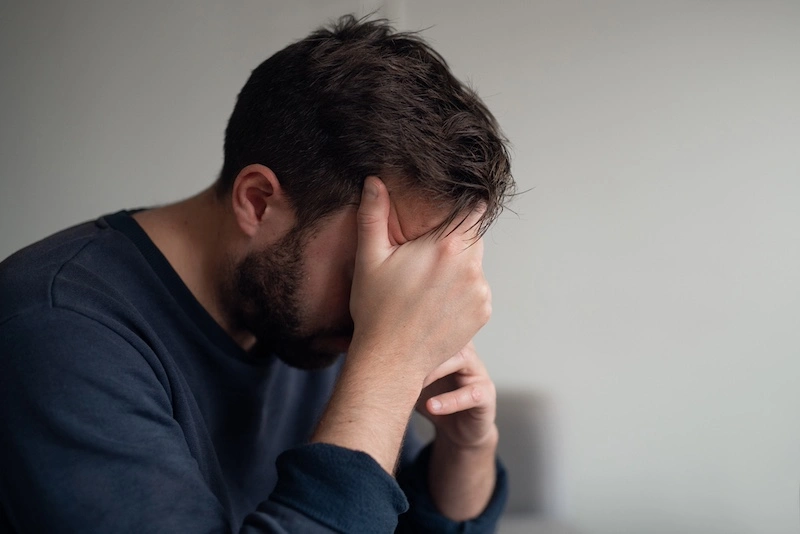Major depressive disorder is a debilitating mental health condition characterized by persistent feelings of sadness, hopelessness, and loss of interest or pleasure in daily activities.
Major depressive disorder is one of the most highly prevalent mental health disorders with significant morbidities. It brings with it several treatments because the root causes are often linked to changes or maladapted formations in the brain. Traditional pharmacological treatment and psychotherapy have been relied upon as the main forms of care.
Unfortunately, psychotherapy, medication, or a combination of the two is often inefficient when it comes to controlling symptoms. Moreover, traditional medicine comes with unwanted side effects. In these cases, individuals might develop treatment-resistant depression.
Today, TMS for major depressive disorder is a novel and promising alternative for individuals with treatment-resistant depression.
Efficacy of TMS therapy for MDD
TMS for major depressive disorder is a new, FDA-approved treatment that does not rely on medication. TMS major depressive disorder therapy instead uses an electoral mechanical medical device that is placed on your head and delivers magnetic stimulation. How how effective is it?
Mechanisms of Transcranial Magnetic Stimulation (TMS)
During TMS for MDD, the magnetic stimulation is sent into your brain briefly without any invasive surgeries or procedures, and the alternating pulses can be specifically targeted at different parts of the brain. These pulses can be delivered at high or low frequency but most clinical treatments for depression are administered at high frequency.
Different parts of the brain are associated with major depression, particularly the left dorsolateral prefrontal cortex. This part of the brain is often poorly regulated and doesn’t function the way it should in patients who have MDD. It’s this deregulation that results in many of the major symptoms.
Under normal circumstances, neither therapy nor medication can directly target the dysfunction in these parts of the brain, but TMS therapy can.

Efficacy of TMS in Major Depressive Disorder (MDD)
Literature reviews report that response rates to TMS for MDD are high, between 50% and 55%, with remission rates averaging 30% of patients with treatment-resistant major depressive disorder.
Literature reviews have examined the use of high-frequency TMS major depressive disorder treatment. Results across 12 studies and hundreds of patients with MDD confirmed that TMS major depressive disorder therapy is not only effective at relieving the severity of symptoms but, in around one-quarter to one-third of cases, can offer complete remission.
TMS therapy for MDD was approved by the FDA in 2008, and over the last decade and a half, additional devices have been cleared, providing newer coils with slightly improved systems.
For the last decade, research into the use of TMS therapy for MDD has been vast. Imaging research has found that stimulation of specific regions of the brain can increase the efficacy of TMS for MDD, particularly the:
- Subgenual anterior cingulate cortex
- Left dorsolateral prefrontal cortex
Functional connectivity studies have found that those with MDD saw clinical improvements when TMS therapy was able to more specifically and deeply stimulate neural networks.
Several clinical TMS sites administering TMS for major depressive disorder have focused on hundreds of patients who have persistent symptoms despite being on traditional medication for depression. In these situations, the antidepressants were ineffective.
Assessments were conducted for all participants at the start of the trial, two weeks later, six weeks later, and six weeks after the fact. Results indicated that there was a significant change from the beginning to the end of treatment, with over 37% remission rates, meaning 37% of people with major depressive disorder who were not responding to traditional medications no longer struggled with symptoms.
Safety and Tolerability of TMS Therapy
Aside from rare instances where patients suffer from epilepsy or have electrical components surgically implanted near the head, TMS for major depressive disorder is widely tolerated. It is also incredibly safe.
As a non-invasive procedure, TMS sessions are short, an average of 20 minutes each. They have no anesthesia or injections and have little recovery time. Side effects are rare and are limited to things like tingling at the side of the electrodes or a mild headache, but these tend to go away after the first several treatments.
Since the treatments do not require anesthesia, there is no need to arrange for a ride, nor is there recovery time, which means patients can immediately resume their activities after each session. Given the shortness of the sessions, patients can schedule up to five per week, expediting how quickly they would get results from care.

Integration of TMS with Other Treatment Modalities
TMS therapy can be integrated with any other treatment modality. If you are considering TMS therapy for MDD, there are no contraindications associated with receiving TMS while also taking other medication or undergoing therapy.
In fact, if you struggle with major depressive disorder and are interested in TMS therapy but are currently on another treatment plan, speak with your care team about incorporating TMS and, if necessary, weaning yourself from other treatments.
Long-Term Effects and Durability of TMS Treatment
TMS major depressive disorder therapy is not a permanent solution. The brain is plastic, and as such, the stimulation directed to areas like the dorsolateral prefrontal cortex can offer changes to the brain structure, but depending on the cause of this dysregulation, results tend to fade after six months to one year.
As such, patients will need to resume treatment on a regular basis in order to sustain their results. That said, given that there are next to no side effects nor contraindications, there is nothing harmful about long-term reliance on TMS at this stage.
Patient Experiences and Testimonials
Patients who have worked with TMS have experienced Improvement at least half of the time with one-third of patients across dozens of studies receiving complete remission.
Summing Up
The efficacy of Transcranial Magnetic Stimulation (TMS) therapy for Major Depressive Disorder (MDD) offers great promise. TMS for MDD can have a transformative impact, especially on people with treatment-resistant depression. If you are struggling, TMS offers hope and relief.
